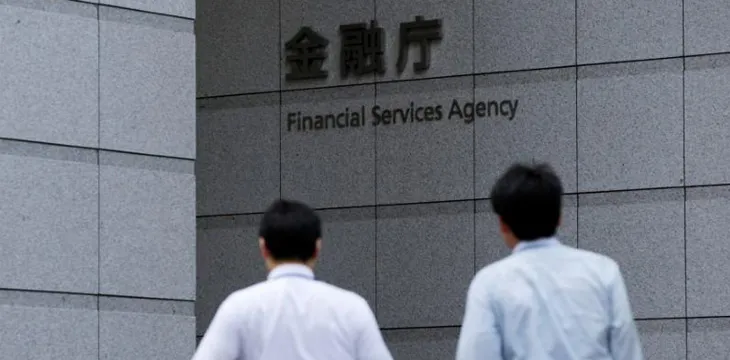|
Getting your Trinity Audio player ready...
|
To prevent another Coincheck incident from happening, financial regulators in Japan are taking proactive steps in ensuring that cryptocurrency investors are protected—including paying on-site visits to cryptocurrency exchanges in the country.
In fact, the Financial Services Agency (FSA) will be knocking on 15 more cryptocurrency exchanges that have pending license applications to check their risk management systems, according to Kyodo News.
Financial Services Minister Taro Aso told reporters they have already informed five of the 15 operators of the plan. The goal, he said, was “to make sure customer protection is ensured.”
“We have decided to conduct on-site inspections on 15 operators that are awaiting approval after examining their reports (on risk management systems),” Aso said, according to the Japanese news agency.
FSA agents started conducting on-site inspections several weeks ago, after news broke out that domestic exchange Coincheck lost JPY58 billion worth of digital money in January. The heist saw hackers getting ahold of 523 million NEM tokens (XEM) from Coincheck’s hot wallet, worth more than $530 million in today’s trading.
Aside from visiting Coincheck’s Tokyo office, FSA also required the company to submit a report not just on the heist, but also on the safety of its systems as well as Coincheck’s plan of action to prevent a repeat of the incident, including strengthening of current measures to manage system risk and creating new measures for system risk management “in addition to making it clear where responsibility lies for different risks.”
Authorities continue to keep close tabs on cryptocurrency-related transactions in Japan. On Friday, Tokyo police arrested four Vietnamese nationals on charges of illegally selling a virtual currency account. Investigators said the $28,000 that was transferred to the account was exchanged to BTC and sent to China.
Police believe the cryptocurrency account was acquired by a Chinese fraud group to be used for money laundering activities.

 09-12-2025
09-12-2025 





